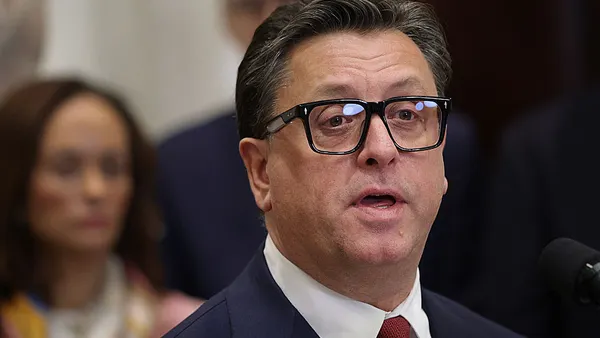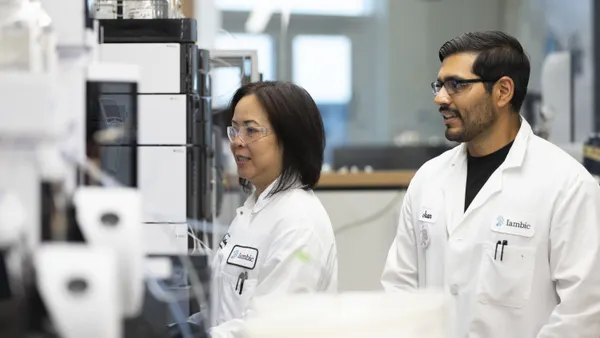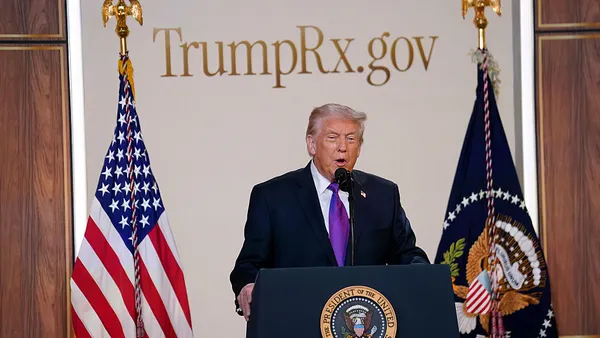Dive Brief:
- Johnson & Johnson won Food and Drug Administration approval to sell its drug Caplyta for patients suffering from major depressive disorder, a key step in its ambitions to make the medicine a $5 billion-a-year seller.
- Caplyta is already cleared to treat patients with schizophrenia and those suffering from bipolar I and II depression, conditions that affect some 13 million Americans combined. Major depressive disorder, also known as clinical depression, afflicts about 22 million Americans and two-thirds of that group don’t get enough relief from current medicines, J&J said Thursday.
- The latest FDA approval is based on research that showed Caplyta could significantly improve depression symptoms, as well as an open-label study that found that 80% of patients responded to treatment, with 65% achieving remission. At the same time, the drug didn’t cause the side effects such as low sexual desire or weight gain that often leads patients to drop off antidepressant treatments, J&J said.
Dive Insight:
The expanded label is a validation of J&J’s $14.6 billion purchase of Intra-Cellular Therapies earlier this year. Intra-Cellular developed Caplyta and won its first approval in schizophrenia in late December 2019.
As the COVID-19 pandemic swept the country in 2020, Intra-Cellular undertook a virtual launch for the drug and then consistently increased sales as TV commercials urged potential patients to “Let in the Lyte.”
After scoring a late-stage clinical trial win in depression in 2024, Intra-Cellular executives projected that Caplyta would eventually bring in annual revenue of $5 billion, a number that surprised Wall Street and clearly intrigued J&J. The acquisition was the industry’s largest to date this year and among the top 10 in the past seven years, according to BioPharma Dive data.
For J&J, the expanded use of Caplyta further strengthens a stable of neuroscience drugs that includes the blockbuster Spravato, a form of ketamine given via nasal spray to treat depression. And it helps make up for the loss of an experimental drug that J&J had hoped would be a multibillion-dollar seller but failed to meet expectations. The company gave up on that medicine, aticaprant, earlier this year.













